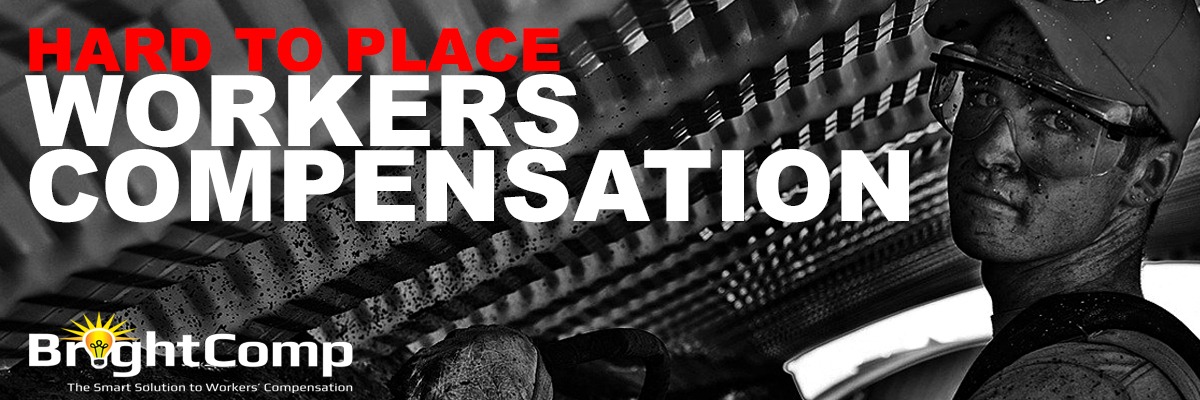What Type of Business Insurance are You Seeking?
What is General Liability Insurance?
General Liability covers the general risks, such as bodily injury or property damage of your clients, whether they occur on your business premises or due to your business operations. Evidence of General Liability Insurance is usually requested to enter contracts, acquire professional licenses from local governments, and renting office space.
What is Professional Liability Insurance?
Professional Liability Insurance, also known as E&O (Errors and Omissions), helps protect the professional advice of accountants and CPAs, financial advisers, home-healthcare professionals, and others.
What is Employment Practices Liability Insurance (EPLI)?
EPLI covers businesses against claims by workers that their legal rights as employees of the company have been violated.
What is Commercial Auto Insurance?
Commercial Auto Insurance covers your business fleet (1 or more units) from physical damage and/or bodily injury resulting from traffic collisions or other hazards. Commercial Auto Insurance refers to passenger vehicles, cargo vans, pickup and utility trucks, tow trucks, food trucks, long-haul, and trailers. Some coverages may be required by law. Others are optional.
- Bodily injury liability
- Medical payments or Personal Injury Protection (PIP)
- Property damage liability
- Collision
- Comprehensive
- Uninsured motorists
What is Commercial Umbrella Insurance?
Commercial Umbrella extends your liability coverage in the event of a claim that exceeds the limits of your General Liability, Commercial Auto, and Commercial Property.
Commercial Property Insurance helps protect your business’ physical assets such as your building, inventory, documents, computers, and machinery. Wind and flood can be optional coverages but should be included.
What is Commercial Property Insurance?
Commercial property insurance helps protect your company’s physical assets from fire, explosions, burst pipes, storms, theft and vandalism. Earthquakes and floods typically aren’t covered by commercial property insurance, unless those perils are added to the policy.
What does Commercial Property Cover?
Commercial property insurance covers your building, everything in it and just outside of it. Here are some examples:
- Computers
- Furniture and equipment
- Exterior signs
- Fence and landscaping
- Important documents
- Inventory
- Others’ property
What is Workers’ Compensation?
Workers’ compensation insurance provides medical and wage benefits to people who are injured or become ill at work.
Coverage Can Be Hard to Find
Finding Workers’ Compensation coverage can be difficult, especially if you are a start-up company, sole proprietorship, or have a history with claims. In particular, construction companies are facing a particularly hard market because insurance carriers are tightening down on the risks they are taking. Many insurance carriers require 3 to 5 years of documented experience to even consider you for coverage. Past claims history can cause businesses have a hard time because their current carrier has decided to not renew them. This creates a situation where a company is looking for coverage with a “black mark” on their record, which can make things difficult.
If you are a start-up business, are a sole proprietor, or you have had many claims in the past, please contact us as we have options that can get you the coverage you need and get you back working!
What is a PEO?
A Professional Employer Organization (PEO) enables clients to cost-effectively outsource the management of human resources and other employment-related tasks including employee administration, workplace safety, compliance, unemployment and workers compensation claims, risk management, benefits, payroll, payroll tax compliance and more.
Through this co-employment arrangement, the client and the Professional Employment Organization contractually share employer responsibilities and liabilities. Clients come in all sizes and industries, and are able to focus on their core business to maintain and grow their bottom line, while the PEO concentrates on what they do best, all of the back office administration.
What are the Advantages of Partnering with a PEO?
- Write one (1) check
- No work comp deposit
- Unemployment claim support
- No work comp audit
- Improved productivity and profitability
- No quarterly reports
- Expert administrative help with risk management and compliance
- Focus on the growth of your company
- Streamlined payroll and claims processing
- Better handling of workers compensation claims
- Help attract and retain top employees
- Improved job satisfaction for your employees
- Relief from the burden of HR and much, much more!
How will My Business Change with a PEO?
Transitioning to a PEO relationship is very easy. You are connected with an onboarding team that will take of everything for you. Once you are set up, communicating with them is simple. You would keep track of your employees hours for bookkeeping just like normal, you would send that information to the PEO and they would then process the payroll checks, taxes and other administrative tasks. Receive an invoice and write one check that covers payroll, taxes, processing and workers compensation.
As your business changes and grows, the PEO relationship will be right there with you. You are communicating with them regularly and any employee changes will current with no additional charge. This is a Pay-As-Go program that eliminates Annual Audits which can be huge surprise financially.





